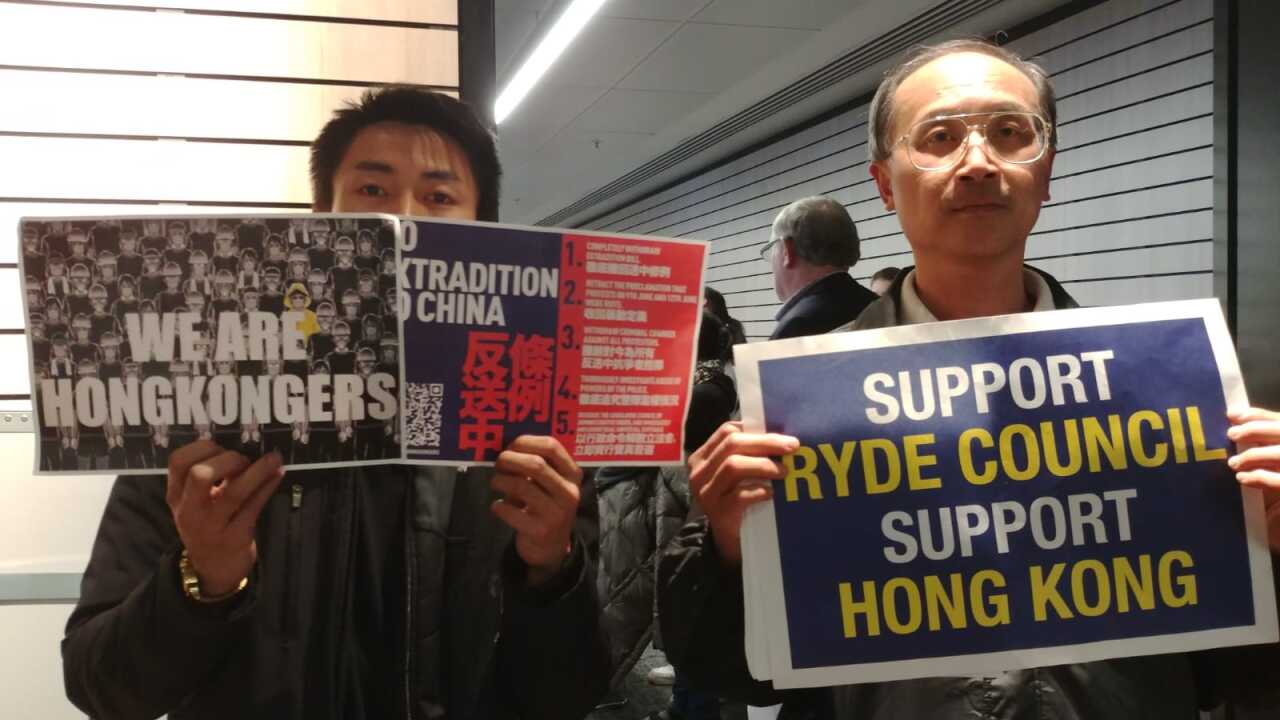The independent senator says he plans to follow through on controversial comments he made last month, which he called on the government to send home "at least two thirds" of the 148 Chinese diplomats and consular personnel currently in Australia.
In a , he said the call came because he believes consulate staff posed a "significant national security problem".
"China has 148 consulate and diplomatic staff in Australia, which is significantly higher than that of other similar countries. This is clearly more than what is reasonably required given the need," the former Centre Alliance senator said. He told SBS Cantonese last week that he plans to raise the matter when parliament resumes next week, either through a notice to the Chamber or by raising a question during Senate estimates.
He told SBS Cantonese last week that he plans to raise the matter when parliament resumes next week, either through a notice to the Chamber or by raising a question during Senate estimates.

South Australian senator Rex Patrick Source: Supplied
However, he is doubtful that he will secure bipartisan support from the two major parties.
"Both the government and the opposition have previously shown reluctance in raising controversial issues," he said.
SBS Cantonese has contacted the Department of Foreign Affairs and Trade and the Embassy of the People's Republic of China in Australia for comment on Senator Patrick's call.
Condemned by Chinese state-media three times
Senator Patrick's comments in July sparked condemnation from the Chinese state-run media publication, Global Times.
In one of three articles criticising the comments, , the publication described Senator Patrick's rhetoric as purveying "a kind of toxic political atmosphere in Australia", and called his move "hysterical McCarthyism".
"Expelling diplomats means a breakdown of goodwill between the two countries. He is short of basic information on China, all of which may come from the prejudice of media reports - probably sensational TV news," the article said.
A piece stated: "Australian politicians such as Patrick who smear China are doing extraordinary damage to bilateral ties. This sets forth a big obstacle for the improvement of China-Australia relations."
The publication also reported that Senator Patrick was "biased" because he had never been to China, a claim rejected by the independent as he said he’d previously travelled to Beijing, Shanghai and Hong Kong.
"I am familiar with their culture. They are great people," the senator said.
“I like Chinese people. I just won’t tolerate unconscionable Chinese government behaviour.”
He said the motive of his call was to create “better bilateral relations” between the two countries, where both sides would be willing to “provide each other benefits in return for interests received”.
When asked whether he will take further action on his call, he affirmed: "DFAT knows about it."
'This is a material breach of the promises'
Turning the focus onto Hong Kong, Senator Patrick revealed that he was present in 1997 to witness the handover of the former British colony back to the People's Republic of China.
He believes the new National Security Law imposed onto the city by Beijing was a "clear violation" of the Sino-British Joint Declaration and the "One Country, Two Systems" principle.
"This is a material breach of the promises," he said.
Massive protests in Hong Kong in 2019 and 2020 were sparked by a proposal to amend the city's extradition laws, which would allow criminals to be extradited to mainland China for prosecution.
Furthermore, the newly enacted National Security Law in Hong Kong in mid-2020 further raised concerns about the Chinese government's involvement in the city. In Australia, there has been bipartisan support for the adoption of a law similar to the Magnitsky Act in the US, which allows the Trump administration to sanction foreign government officials implicated in human rights abuses.
In Australia, there has been bipartisan support for the adoption of a law similar to the Magnitsky Act in the US, which allows the Trump administration to sanction foreign government officials implicated in human rights abuses.

Protesters have broken into Hong Kong's Legislative Council building and scrawled graffiti. (AAP) Source: AAP
When responding to SBS Cantonese’s enquiries, 20 politicians from Australia’s two major parties, The Greens and One Nation, said they would support such a move.
Senator Patrick said he supports the principles of such legislation, but declined comment until more information is available.

Australia-Hong Kong Link's members and supporters at Parliament House in Canberra. Source: Australia-Hong Kong Link
President Xi ‘made a tactical error’
Senator Patrick believes that the government of the Chinese President Xi Jinping made a "tactical error" in recent months.
"Australian politicians typically concentrate on the coming 3-4 years, within the present government term, while Beijing would usually look at long term, working very slowly in achieving their aims.
"They [Chinese government] typically gently increase their soft power. It is very hard for ordinary people to notice or to be alerted, except those who tuned in very closely.
"For example, in the South China Sea, where they started building things. It began with small facilities, and they gradually became significant infrastructure."
However, in "breaching this slow process", Senator Patrick said the recent actions by President Xi have become more noticeable and had drawn an immediate response from multilateral parties.
"I think Xi had made a tactical error in the past six months. If they were to reflect upon these six months, I believe they might take a different approach," he said.
He believes this approach from Beijing has "woken up the general public" to China's interference on different matters.
"Unquestionably, Australians are now more aware of that.”



